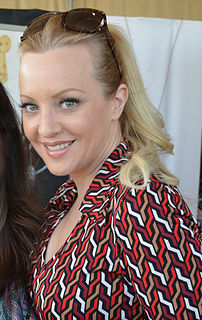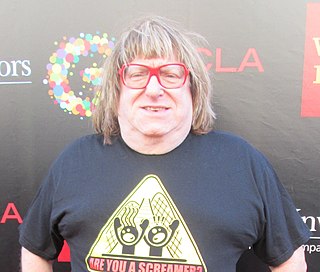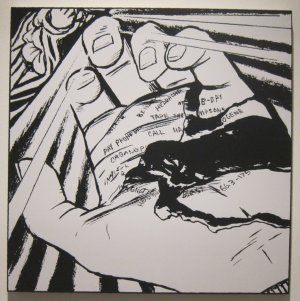A Quote by Thomas Vinterberg
When you get a bad review, you hate the writer. It's very painful; whoever says the opposite lies. It's humiliating. Sometimes it comes from an honest place, but most times, it comes from a desire to trash someone.
Related Quotes
Writers are funny about reviews: when they get a good one they ignore it-- but when they get a bad review they never forget it. Every writer I know is the same way: you get a hundred good reviews, and one bad, andyou remember only the bad. For years, you go on and fantasize about the reviewer who didn't like your book; you imagine him as a jerk, a wife-beater, a real ogre. And, in the meantime, the reviewer has forgotten all about the whole thing. But, twenty years later, the writer still remembers that one bad review.
Most people don't get out of childhood, or adolescence, without being wounded for telling the truth. Someone says 'you can't say that' or 'you shouldn't say that' or 'that wasn't appropriate' so most of us human beings have a very deep underlying conditioning that says that just to be who we are is not OK.......Most human beings have an imprinting that if they're real, if they're honest, somebody's not gonna like it. And they won't be able to control their environment if they tell the truth.
As a journalist, I never critiqued anyone. I never review books. I've never felt qualified as a musician to say whether someone is a good musician or a bad musician. What happens with Black writers and Black artists is that if you're critiqued, for example, by a Black historian who wants to get his name on the cover of "The New York Times," and he says something, like, wacky, well, he'll get his name on the cover of "The New York Times" and he might get tenure, and your career suffers.
I don't think immediate tragedy is a very good source of art. It can be, but too often it's raw and painful and un-dealt-with. Sometimes art can be a really good escape from the intolerable, and a good place to go when things are bad, but that doesn't mean you have to write directly about the bad thing; sometimes you need to let time pass, and allow the thing that hurts to get covered with layers, and then you take it out, like a pearl, and you make art out of it.
When someone tells you, 'I love you,' and then you feel, 'Oh, I must be worthy after all,' that's an illusion. That's not true. Or someone says, 'I hate you,' and you think, 'Oh, God, I knew it; I'm not very worthy,' that's not true either. Neither one of these thoughts hold any intrinsic reality. They are an overlay. When someone says, 'I love you,' he is telling you about himself, not you. When someone says, 'I hate you,' she is telling you about herself, not you. World views are self views-literally.
One thing I noticed over time is that if I got a bad review, usually the bad part of it was at the very end. I could tell that nobody read the whole review because they would just say, "It was great to see the review!" In a way, my brain shuts down at the end of an article. It doesn't really want to go to the end.
Whoever writes a bad review, I put their name on a list, and they're going to get taken care of one day down the road. Otherwise, I don't let it bother me. The truth is, these are review-proof movies. The audiences are going to see it. My audience, our audience, isn't reading Esquire magazine to see if my movie is good or not. They just want to laugh, to be entertained, and lose themselves.
The world's a hard place, Danny. It don't care. It don't hate you and me, but it don't love us, either. Terrible things happen in the world, and they're things no one can explain. Good people die in bad, painful ways and leave the folks that love them all alone. Sometimes it seems like it's only the bad people who stay healthy and prosper. The world don't love you, but your momma does and so do I.




































